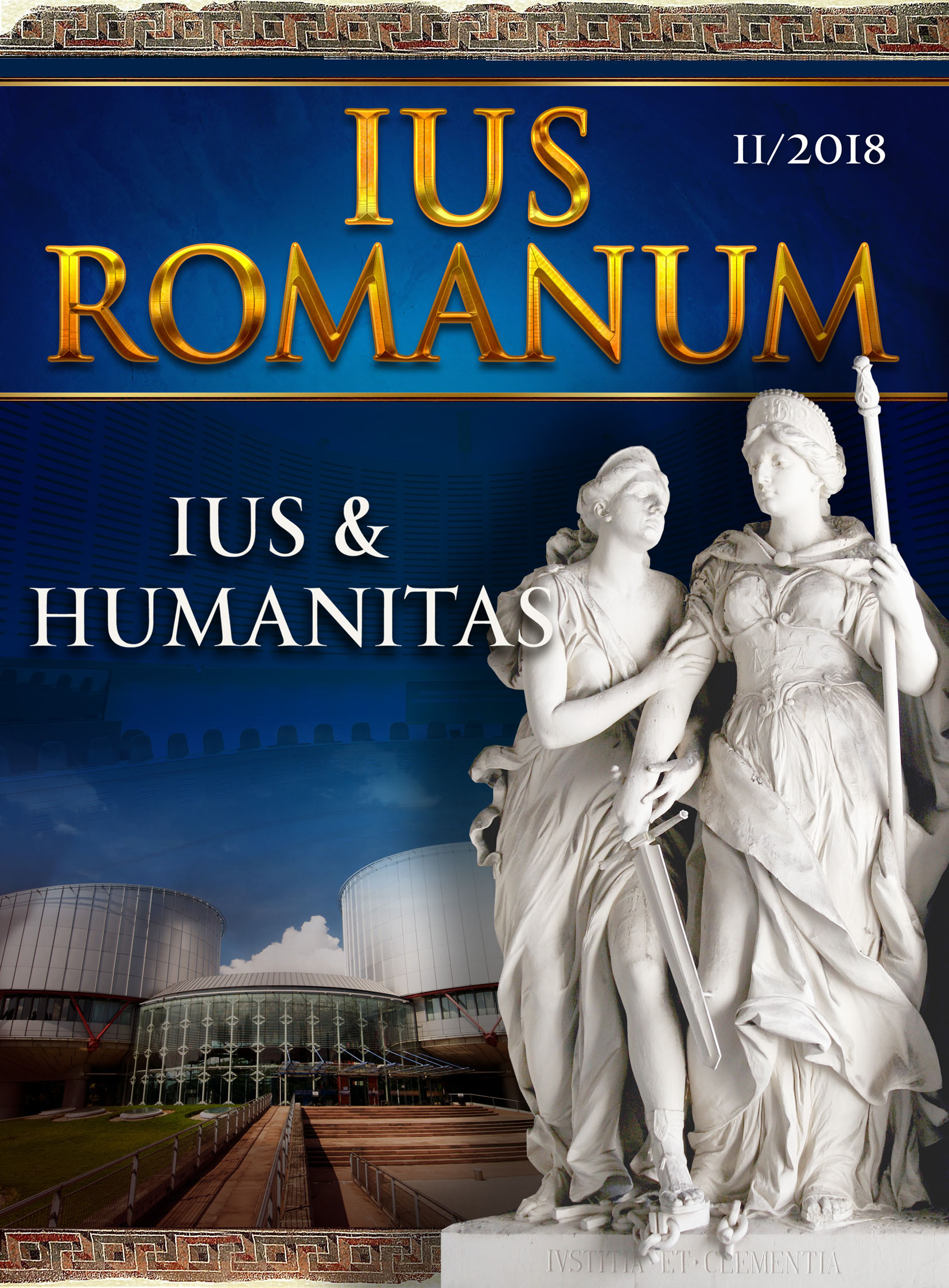HUMANITAS IN EMPEROR UXORIUS’ LEGISLATION
HUMANITAS IN EMPEROR UXORIUS’ LEGISLATION
Author(s): Cristina PopSubject(s): Law, Constitution, Jurisprudence, History of Law, Civil Law, Human Rights and Humanitarian Law, Canon Law / Church Law, EU-Legislation
Published by: Софийски университет »Св. Климент Охридски«
Keywords: Justinian; Theodora; Christianity; humanitas; women; marriage; family; divorce; succession; dowry
Summary/Abstract: Justinian’s administrative work and his religious efforts have been decisive for the development of human history. For Justinian, the notion of a Roman Empire was confused with that of Christian oikumene, and the victory of faith was not any less important to him than the restoration of Roman power and unity. His introduction of humanitas in his legislative work and the consequences that this entails was supported by the emperor’s religious convictions. From a legal standpoint, the beneficiaries of the term humanitas in Justinian’s time were women, children, slaves, the ill, the illiterate. Justinian's legal texts promoted, from a humanitas point of view, the woman’s legal position. Under the influence of the Christian Church, the legislation of the Byzantine Empire concerning marriage became increasingly severe. His legislation was strict and dominated the entire eastern Middle Age by aggravating the conditions required for two Roman citizens to divorce, disallowing divorce through mutual agreement, excepting situations in which both spouses wished to live in chastity. Not even the legal succession field was omitted from the stock of legal innovations brought about by Justinian. In the same time, as Justinian’s wife, Theodora must have influenced Justinian’s legislation with regards to the female status.
Journal: IUS ROMANUM
- Issue Year: 2018
- Issue No: 2
- Page Range: 403-426
- Page Count: 24
- Language: English

